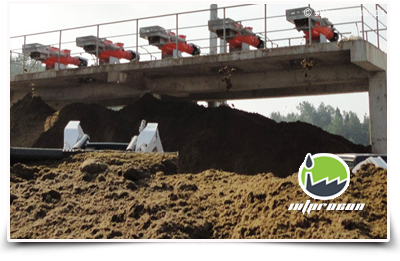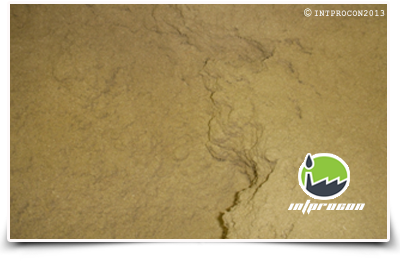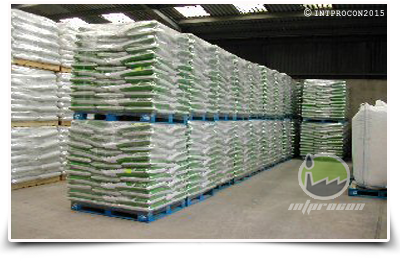MANURE PROCESSING PLANT
General Information
Dairies, swine operations, beef cattle feedlots and poultry houses generate substantial amounts of manure. This By-product is an excellent source of nutrients that can be used to feed plants and crops. The manure also adds organic matter to soil that improves its nutrient retention, waterholding capacity, infiltration and porosity. When property managed, manure can be a valuable resource. However, applying manure to the land can also create nuisance odors, contaminate surface and groundwater, and cause nutrient inhalences in the soil. When properly administered, manure can be a valuable resource.
However, the application of manure to the soil can also create annoying odors, contaminate surface and groundwater and cause the leaching of nutrients in the soil, also the presence of high urea contents, mineral salts that animals do not process, generate a crust on the ground and prevent water from penetrating and can cause a focus on the proliferation of diseases (high moisture content is the ideal environment for pathogens, fungi and insects). For these reasons the manure must be processed to obtain the maximum benefit of these in the crops.

MOST SIGNIFICANT BENEFIT OF THE PROCESS
Better management of waste and the reincorporation of waste into the environment in a responsible and friendly way, make organic production a viable alternative in these times, and at the same time it gives the opportunity to be used as fertilizer.

GENERAL DESCRIPTION OF THE PLANT
The process of transformation of these products is dry, and without adding steam for industrialization, nor the need for fuel burners used in traditional rotary dryers.
If you need more information about our solutions
Fill out the form and we will assist you as quickly as possible.

Generate income from waste and be friendly to the environment are the objectives of livestock activities that aim to endure for many decades.
All animal manure can be converted into fertilizers of organic origin and returned safely to the environment and generating a positive impact.
Why choose Our Plants?
Our customers choose this type of plants because:
